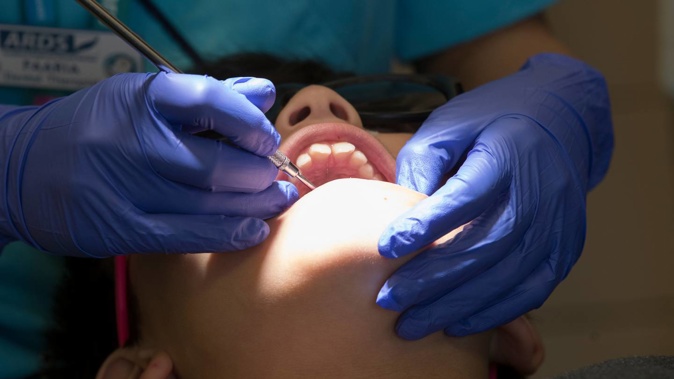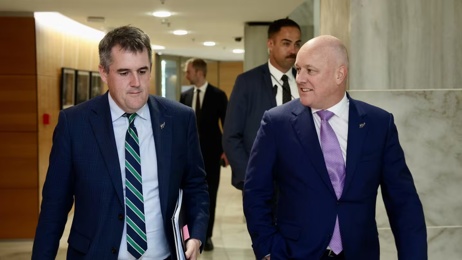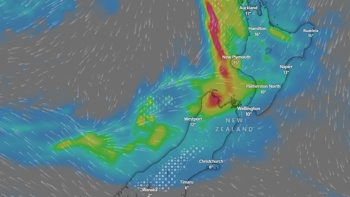
Two years ago, before the pandemic gripped our political consciousness, the Government was challenged to do more about the appalling state of New Zealanders' oral health.
The issue is a pressing one. New Zealand Dental Association President Dr Katie Ayers said that in her 26 years in the profession, the amount on offer for low-income New Zealanders' care has not increased, while the costs of dental care have continued to rise, leading to more and more people avoiding visits to the dentist.
The issue was raised at Waitangi in 2020, when both Labour and National made signals they were keen to expand what the state could do to help with the spiralling cost of dentistry.
National promised a $120 million child dental package, while Labour promised $176m to increase the amount people could claim for an emergency special needs grant for dental care, from $300 to $1000, as well as funding for mobile dental clinics, costing $37.5 m.
Labour's policies were charged against the party's spending promises for Budget 2021, but both were missing (the party remains committed to them) when that Budget was actually delivered last year. Papers released afterwards revealed the delay was down to the cost of reforming the health system.
But dentistry advocates are keen to keep up the pressure, reminding the Government of poor oral health experienced by many New Zealanders, particularly those on low incomes.
Research from the NZDA published in 2019, found that Kiwis in the most deprived communities have poorer oral health and get dental care less frequently.
Just 34.6 per cent of people living in the most deprived communities visited dental care in the previous 12 months, compared with 56.7 per cent of Kiwis in the least deprived areas. More than half - 51.5 per cent – avoided dental care in the previous 12 months due to cost, compared with 35.2 per cent in the least deprived areas.
The research looked at a public scheme for "basic dental services" for a group of 380,000 low-income adults.
Using Treasury's cost-benefit analysis tool, the research found the Government could fund as much as $900 worth of subsidies each year for dental care for those people and still 'break even' in terms of benefits returned to the Crown.

Health Minister Andrew Little said the Government remains committed to dental promises. Photo / Mark Mitchell
At a cost of $590 per person per year, the Government would get a $1.60 return on each dollar spent.
But the cost of that care is immense. The NZDA reckons about $187m to $450m per year - putting it at the pricier end of budget initiatives.
By way of comparison, the average annual spending of the mental health initiatives in the 2019 Wellbeing Budget was $346m.
Ayers described the dental problem as "huge".
"I've been a dentist for 26 years and during that time I've seen no improvements in what is being provided for low-income adults," Ayers said.
"When I was a first-year dentist 26 years ago, if beneficiaries needed help getting urgent dental care, they were entitled to a $300 grant through MSD – 26 years later that hasn't changed," she said.
"It's just not enough".
Ayers said the emergency grants were still the "ambulance at the bottom of the cliff".
"The Government' aren't really funding much adult dental care at all - there's some funding that goes to under 18, but as soon as you turn 18 your entitlement for funded care almost always come to a halt," she said.
National's Health spokesman Dr Shane Reti slammed the Government for delaying its election pledges.
"They've kept silent on it because they realise it's an unequivocal broken promise," Reti said.
Reti said he sees "benefits" in increasing the emergency dental grant, "but it is the ambulance at the bottom of the cliff".
He believed a short, medium, and long-term strategy to fixing dental care is needed but warned this means "you don't see the benefits in an electoral cycle".
Short-term help would mean things like emergency dental grants, while long-term fixes include getting compulsory teeth brushing in schools.
In the medium-term, Reti thinks more could be gone to get more dentists in hospitals.
"We have a dearth of hospital dentists. I'm really interested in building our in-hospital capacity in collaboration with the private sector," he said.
The Government has set itself a record $6 billion allowance for new spending in Budget 2022, with Finance Minister Grant Robertson describing the increase as a "one off" which would help tackle priorities of reforming the health system and climate change.
Health Minister Andrew Little is coy on what health spending will be included in the budget, but says Labour remains committed to the two dental policies funded in its manifesto.
"I'm aware of the need for improved dental healthcare assistance and mobile services, that's why Labour made its manifesto commitment," Little said.
"This Government remains committed to our dental manifesto policies and when I am ready to make an announcement I will do so," he said.
- by Thomas Coughlan
Take your Radio, Podcasts and Music with you









